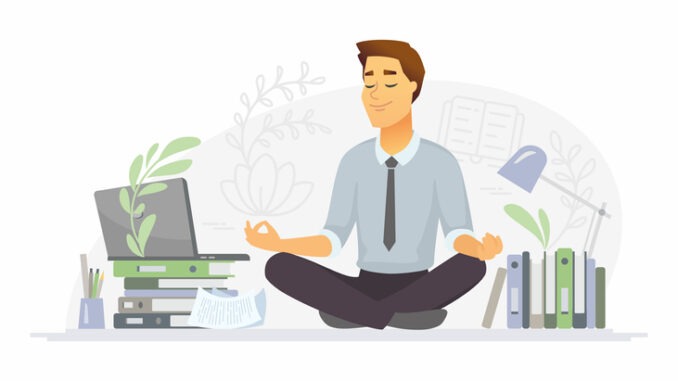
We share some of the UK’s most searched for wellbeing activities and terms, and explain more about how you can incorporate them into your day-to-day life
CREDIT: This is an edited version of an article that originally appeared on Happiful
Health and wellbeing have, in many respects, taken centre stage over recent years. We are becoming more aware of the importance of looking after our health as a whole, both mentally and physically. According to Bupa’s 2022 health trends report, more and more of us are starting to search for ways we can improve our wellbeing through more mindful exercise and mindful drinking, as well as tracking our stress levels and moods.
New research commissioned by The Knowledge Academy highlights the most commonly searched for wellbeing skills that we Brits want to learn about; developing wellbeing skills can help us to better understand, and support, our overall mental and physical health. Many of the techniques we learn can help to reduce stress, promote relaxation and reflection, and can even help us to better understand how we are feeling, recognise challenges and discover new ways to cope with, or overcome, them. Here are some wellbeing activities and techniques that you can use to create a sustainable self-care routine.
Morning routine
Known for our dreary weather and overcast skies, it’s no wonder so many of us want to get our days off to a better start with a great morning routine. If you find yourself struggling to get out of bed in the morning, there are many different ways you can tweak your routine to help you become a morning person.
From supercharging your breakfast to ensure a more nutritious start to the day, to implementing the five-second rule, ask yourself ‘What do I most want to get out of my morning routine?’ Are you hoping to be more productive, feel more rested, or even start the day with a sense of peace and relaxation? Knowing what you want from your mornings can help you create the best routine to fit your needs.
Quitting smoking
Around 6.9m people in the UK are still smokers. We all know the health risks of smoking, but that doesn’t make quitting any easier. Giving up smoking has been shown to have a huge range of benefits, including improved energy and immune system, increased life expectancy, decreased stress and younger-looking skin.
Quitting smoking is a huge challenge that can take more than just willpower alone to break the habit for good. If you have struggled to quit in the past, hypnotherapy may be the answer. Helping to break negative behaviours and thinking patterns associated with smoking, a qualified, experienced hypnotherapist can guide you, as well as help teach you self-hypnosis techniques you can use to reinforce suggestions and improved behaviours long after your sessions are complete.
Random acts of kindness
Showing kindness isn’t just good for others – it’s good for us too. As Happiful’s own Kat explains, we’re wired for kindness. Practising kindness not only helps others feel loved and supported, but it helps us feel better, too. Try these simple ways to show kindness at work, in public, and with yourself, or take things online with these five acts of digital kindness.
Pomodoro Technique
The Pomodoro Technique works with the idea that it’s better to set aside a specific time to concentrate on a specific task and then build in a break, rather than trying to multi-task and do several things at once. “Pomodoro is a time-management method that is used around the world,” wellbeing facilitator and coach Elaine Hilides explains. “The idea is that you decide on a task to do and then set the timer. You work on the task until the timer rings, and mark the time you spent on a piece of paper. You then take a short, three to five-minute, break, set the timer and start again. When you have completed four rounds of this, you take a longer, 15 to 30-minute, break.
“Giving yourself ‘permission’ to take short breaks helps to activate the reward system in our brains. Taking a longer break at the end of an hour or so helps you get through your work and to enjoy a few more ‘fun’ things in your day.”
Positive affirmations
Affirmations have more power than you might think. Helping us to gain confidence, find self-acceptance and practice self-love, positive affirmations can even help us to conquer anxiety.
Many of us practice negative affirmations without even realising it. By telling ourselves ‘I can’t do it’ or ‘I’m going to fail’ we are, essentially, telling ourselves that this is important information. As NLP practitioner Nicola Rae-Wickham explains, this can have a significant impact. “Language is one of the ways in which our mind is influenced and we can use it to help us get the results we want. It is this information that impacts our behaviour.”
Relaxation techniques
There are many different relaxation techniques you can use in your everyday life. Breathing techniques can not only be used to help you feel more grounded, and present in the moment, but can also be done anytime, anywhere. Aromatherapy for relaxation is another popular technique that can be incorporated with other wellbeing activities such as massage, meditation, or even while taking a mindful bath.
If you find yourself struggling to relax, try Hypnotherapy Directory’s guide on how to practice self-hypnosis for relaxation.
Bullet journaling
Research has shown that journaling can help us to manage anxiety, reduce stress and cope with depression. By just writing down how we are thinking and feeling, we can begin to prioritise our problems, set them aside during the day, and even monitor how our mood and mental health change over time.
Bullet journaling has become a popular method to track everything in one place. It’s essentially a to-do list, planner and diary, all in one. You can use it to track just about everything, from tasks you want to turn into daily habits, to finding little ways to boost your motivation each day.


Be the first to comment